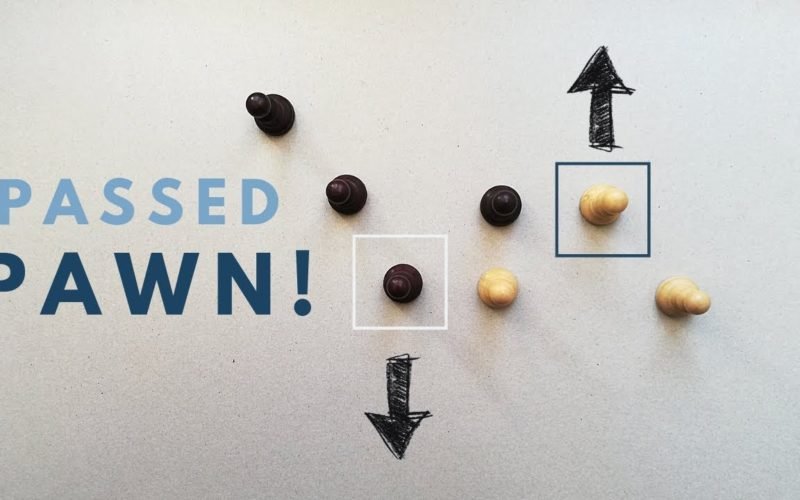Having a passed pawn can often mean victory! In this video I’ve tried to show how to spot opportunities for creating one, how to herd it forward and how to stop it if your opponent has one.
Pawns are worth one point of material (minor pieces three, rooks five etc.). When a pawn is passed, though, meaning that there are no opposing pawns to challenge it on its or on both adjacent files, its value can increase nine-fold. Passed pawns promote to queens. It’s as simple as that, therefore, a value of a passed pawn ranges from one to nine points, depending on how likely it is to promote.
Very often, a passed pawn in a position means that the whole play will have to revolve around it. The side with the passed pawn tries to push it forward, and the opposing player does everything in his power to stop it, blockade it, or remove it from the board.
Aaron Nimzowitsch wrote that a passed pawn should be treated like a criminal and that it should be kept “under lock and key”. Nothing is more true. A passed pawn is extremely dangerous and sly. Even though it might seem harmless on d4, in two moves it could reach the sixth rank and threaten promotion!
Playing against it is hard, but the best strategy is to blockade it. Put a piece in front of it and stop it from moving. Generally, the best pieces to blockade with are knights, but in crisis any will do.
I have given four examples of how a passer can be created. They all come from real games and all but the last example brought victory.
Example 1) use your pawn majority
Example 2) use pawn breaks
Example 3) use favorable trades
Example 4) use positional sacrifices
One very important aspect of playing with a passed pawn is knowing when to treat it as an expendable advantage. Same as with being material up, a passed pawn can be exchanged for a more palpable or a more important positional, strategic, tactical or material advantage in order to win the game. Some players tend to hold on to it and never let go, and, in some cases, such strategy leads to loss of advantage or worse.
Remember to use a passed pawn as an asset, but also as a threat. One famous chess quote says that the threat is stronger than the execution. And that is very true. If your opponent is forced to consider your passed pawn on each turn, he will lose time, get tired, increase his chances of erring, and that might be as significant as a queen on the board!
#chess

